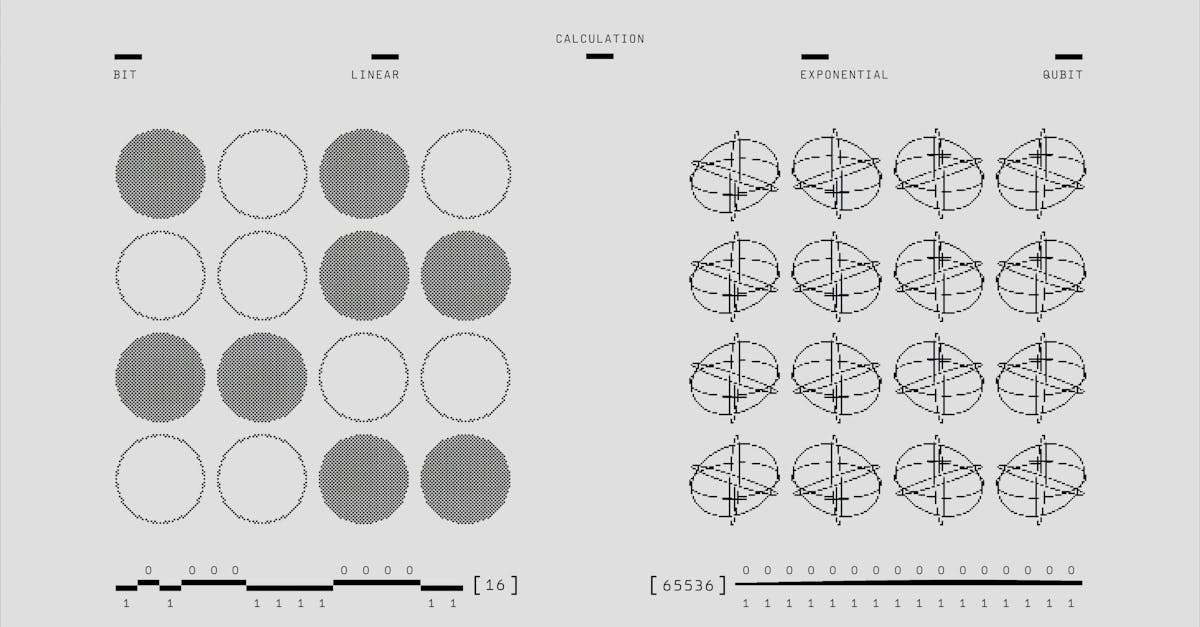
Introduction
The realm of quantum computing is no longer confined to theoretical physics—it has made strides into practical applications, revolutionizing technology and challenging established norms. One of the most profound impacts is in cryptography, the backbone of cybersecurity. Recent breakthroughs in quantum computing are prompting the development of new cryptographic standards, fundamentally altering how data is encrypted and protected. As quantum computers become more powerful, they can crack traditional cryptographic algorithms that once seemed impregnable. This looming quantum threat has echoed within the walls of global institutions, prompting researchers to innovate and build quantum-resistant cryptographic systems. We are at the cusp of a new era, where prioritizing quantum-safe encryption becomes paramount.
Understanding Quantum Computing
Quantum computing harnesses the principles of quantum mechanics, utilizing unique phenomena such as superposition and entanglement. Unlike classical computers, which operate using bits, quantum computers use quantum bits or qubits. This gives quantum computers the potential to process information at exponentially faster rates than classical counterparts. Although still in nascent stages for widespread use, quantum computers have demonstrated capabilities in complex problem-solving and simulations that could take today’s supercomputers centuries to solve. As this technology matures, it promises unprecedented advancements across multiple sectors, from pharmaceuticals to finance.

Google DeepMind/Pexels
Cryptography: The Bedrock of Digital Security
Cryptography serves as the backbone for digital security, encompassing techniques which protect confidential information. Traditional systems rely on complex mathematical problems—deemed infeasible to solve within a reasonable timeframe. Algorithms such as RSA and ECC have long been foundational, their security predicated on the difficulty of factoring large numbers or solving discrete logarithm problems. However, the looming presence of powerful quantum computers threatens to dismantle this bedrock, necessitating a swift recalibration towards more robust cryptographic methods. A transformation is underway, as the current technology-centric era narrows closer to the quantum epoch.
The Quantum Threat
Quantum computers, paired with algorithms like Shor’s algorithm, have the potential to decode traditional encryption by exponentially reducing the time required to solve these mathematical problems. For instance, RSA, a widely used encryption standard, becomes vulnerable as quantum computing advances. The threat to classical cryptographic systems is not theoretical but imminent, underpinning the urgent need for quantum-safe encryption systems. Institutions such as the National Institute of Standards and Technology (NIST) are spearheading efforts to evaluate and establish new cryptographic standards resistant to quantum decryption.
Quantum-Resistant Cryptography
Quantum-resistant cryptographic systems, also known as post-quantum cryptography, are designed to secure data against quantum computing attacks. These systems leverage complex mathematical problems that both classical and quantum computers find challenging. Lattice-based cryptography, hash-based cryptography, and multivariate polynomial equations are potential candidates. Each offers layers of security distinct from current solutions. As researchers continue to explore and refine these algorithms, the goal is a seamless transition to quantum-resistant standards without disrupting the existing infrastructure.
Challenges in Implementation
Adopting quantum-resistant cryptography is not without its hurdles. Implementation involves comprehensive research, large-scale testing, and integration. The transition will need to be gradual to ensure compatibility with current systems and to remain cost-effective. Another hurdle is education—understanding quantum-safe algorithms is crucial not only for cryptographers but also for industries relying on digital security. Collaboration across international and sector boundaries is essential to establish universal standards that meet both governance and technological needs.
The Role of Global Collaboration
Given the global implications, collaboration across nations and industries is indispensable for developing quantum-resilient cryptographic solutions. Entities like the Global Venture Capital Congress and international research bodies are spearheading initiatives to facilitate shared knowledge and resources. Cooperation helps standardize methodologies, recognize challenges, and ultimately accelerate the deployment of quantum-proof encryption systems. Trust and transparency in these efforts will fortify the security of data exchange globally, embracing a unified approach against potential threats.
Real-World Implications
Quantum computing advancements herald changes not just in data security but in various industries. By breeching traditional barriers, quantum advances could revolutionize finance through complex modeling, redefine logistics with optimized routing, and further scientific research with accelerated simulations. The real-world implications emphasize the need to protect digital infrastructure now, ensuring tomorrow's technological revolution does not compromise today’s security constructs. Understanding and anticipating quantum influence helps institutions prepare for these ensuing changes globally.
Preparing for the Quantum Future
Enterprises, governments, and individuals must brace for a future defined by quantum computing. This involves proactive investment in quantum-safe technologies today to prepare for a quantum-dominated tomorrow. Enhanced focus should be on training new generations in quantum technologies and integrating quantum-friendly standards into business practices. Working towards creating a secure digital environment necessitates infrastructure designed to withstand anticipated quantum advancements while fostering innovation and progress.
Conclusion
The evolution of quantum computing is steering the world towards an inevitable transformation. New cryptographic standards are no longer optional—they are necessary to ensure information security against impending quantum threats. As researchers and industries sprint towards quantum-safe systems, collaboration and education remain key. The future boundaries of digital security are being redrawn today—safeguarding information in an age of quantum dominance will determine the resilience and adaptability of tomorrow's connected world.